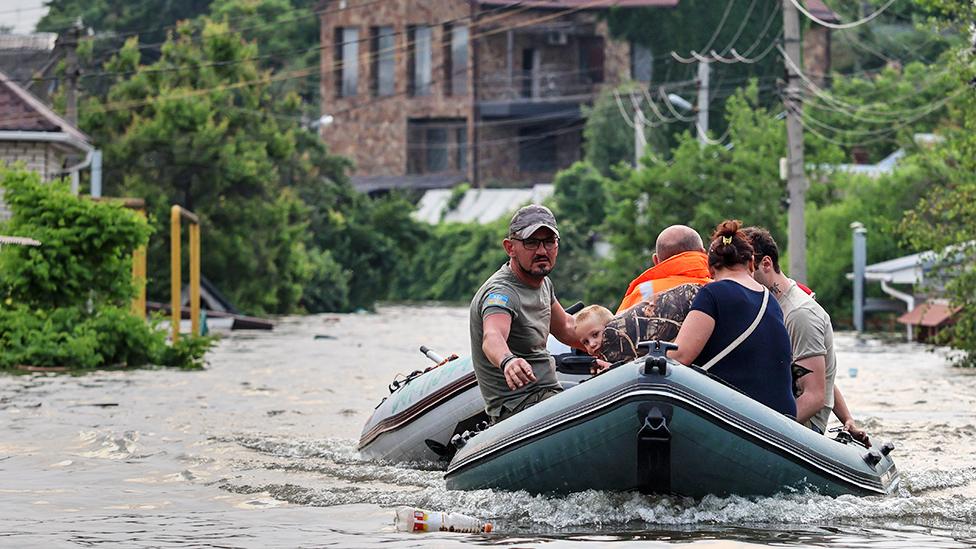Ukraine dam: Floods devastate tracts of rich farmland
- Published
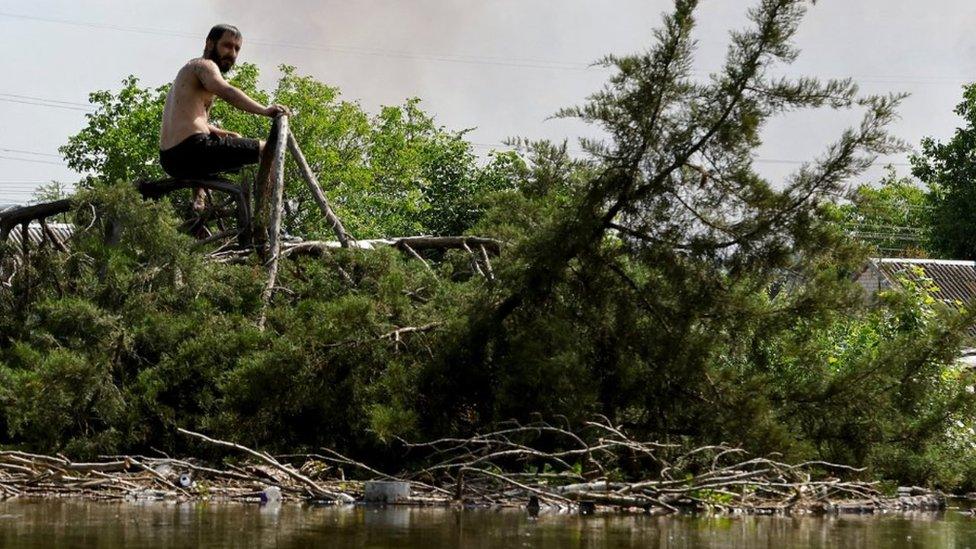
Flooding along the Russian-controlled bank of the Dnipro is worse than on the Ukrainian-held side
The immediate humanitarian consequences, in flooded homes and displaced civilians, are dramatic enough.
But Ukrainian officials are now warning of serious long-term consequences for agriculture across one of the country's most fertile areas.
The agriculture ministry on Wednesday predicted that fields in southern Ukraine could "turn into deserts as early as next year", as vital irrigation systems, which depend on the vast Kakhovka reservoir, cease to function.
The reservoir is fast disappearing, sending an estimated 4.4 cubic miles of water roaring down the Dnipro River towards the Black Sea.
Before the war, the ministry says, 31 irrigation systems provided water for 584,000 hectares (more than 2,200 sq miles) of farmland.
"The dam was the only source of water for irrigation," First Deputy Minister Taras Vysotsky told me.
"The dam and the pumping station in it were needed for us to take this water and deliver it. This is now destroyed. If farmers are going to have water lines, it should be built again from the beginning."
The Kherson region is among Ukraine's most fertile and productive.
Apart from its famous watermelons, the rich farmland either side of the Dnipro River produces a host of different crops, from onions and tomatoes to sunflowers, soybeans and wheat. Dairy farms are also likely to be affected.
See the extent of the dam breach devastation and rescue attempts
Russian-occupied areas of Ukraine, including Crimea, which Russia annexed in 2014, may see some of the worst impacts.
The flooding along the Russian-controlled southern shore of the Dnipro is significantly worse than on the Ukrainian-held northern side.
Further afield, Crimea - an arid peninsula which depends heavily on Dnipro water, may see its supplies dry up altogether.
A canal carrying water to Crimea exits the river at Nova Kakhovka, just above the dam. Once the reservoir is drained, it's unlikely any water will reach the canal.
Russian officials say the flow along the canal has already dropped significantly, and use this as evidence to bolster their claim that Ukraine, not Russia, was behind the dam's collapse.
Given Moscow's record of falsehoods around virtually every aspect of the war so far, such claims deserve to be treated with some scepticism.
How long will it take for this disaster to unfold?
Officials are still trying to assess the vast flow of water through the stricken dam. It's likely that in a few weeks a reservoir first created in 1956, after the dam and adjacent hydroelectric plant were completed, will be a river once more.
Estimating the cost of several years of relying on rainfall, without adequate irrigation, isn't easy. But Mr Vysotsky said it was likely to be between $1bn and $1.5bn (£800m-£1.2bn).
"It could take up to five years to repair [the dam]," he told me, "or rebuild it again from the start. So if we're losing $1.5bn for five years, we can calculate that the sector would lose around $7bn.
Even before the cost of the current losses is calculated, international markets have taken note. The flooding helped to trigger a sharp rise in global wheat prices.
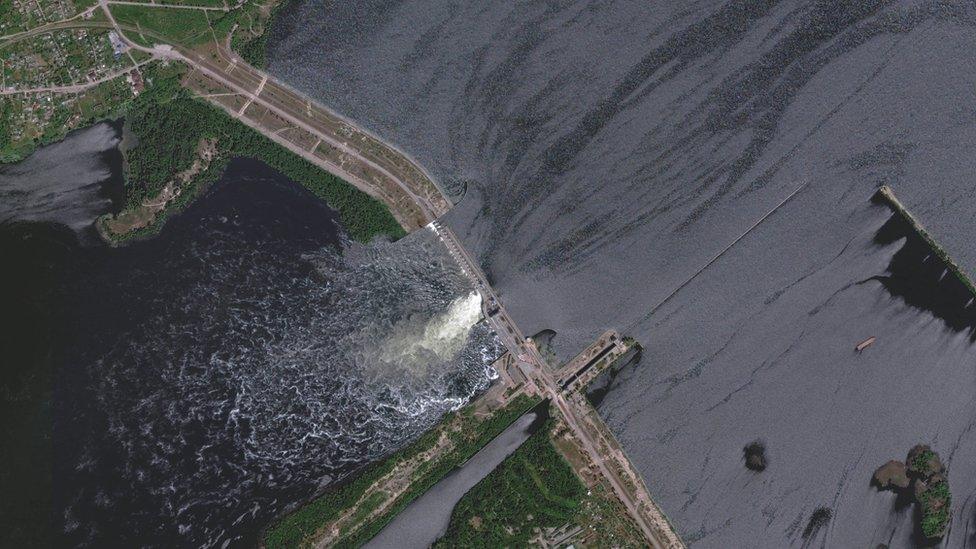
A satellite image shows Nova Kakhovka dam in the Kherson region
But it's not just agriculture that's going to be affected by this manmade disaster.
Without the reservoir, this morning's statement from the agriculture ministry said: "Not only farmers and water users will suffer, but also the sources of drinking water supply in populated areas."
Officials are scrambling to figure out ways of getting potable water to towns and villages where the taps have run dry.
Another consequence of the flooding that residents along the swollen river are already starting to see - and smell - is pollution.
When the dam and hydroelectric plant collapsed, tons of engine oil and other chemicals were dumped into the gushing water.
"Although it will take weeks to understand the full impact… we can already see pollution in the area is very high," Sofia Sadogurska, climate and policy expert at the civil society organisation Ecoaction Ukraine, told the BBC.
"Both from the hydroelectric power station itself and from secondary pollutants in areas. Every city has its own sewage system."
Ukrainian President Volodymyr Zelensky called it "an environmental bomb of mass destruction". The country's prosecutor general's office said it was investigating a possible crime of "ecocide."
After more than a year of horrors inflicted by Russia's unprovoked invasion, Ukrainian officials have greeted this latest setback with a kind of grim resignation.
"The whole war is a disaster," Mr Vysotsky said. "Unfortunately we've had disasters since February 2022. In many places, from the smallest to the biggest possible."
Related topics
- Published6 June 2023
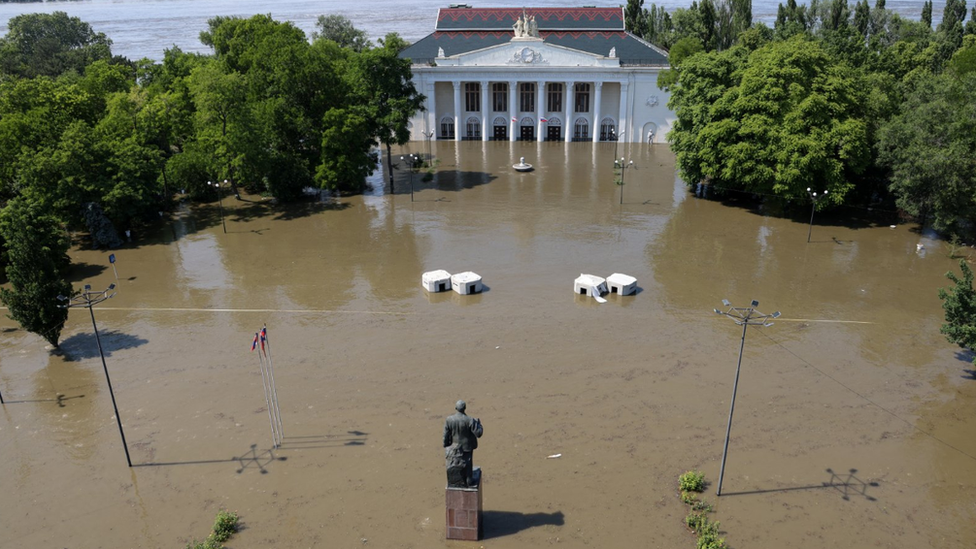
- Published6 June 2023
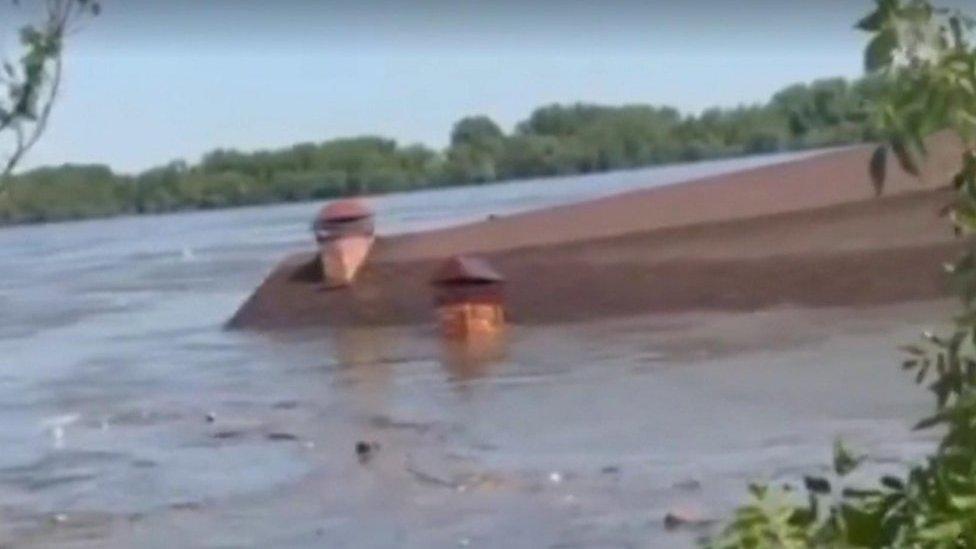
- Published6 June 2023
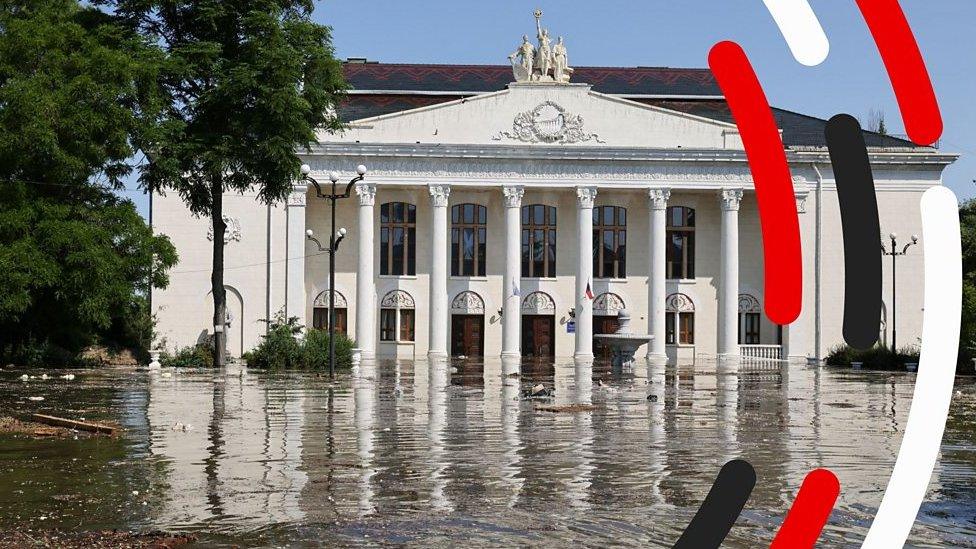
- Published7 June 2023
